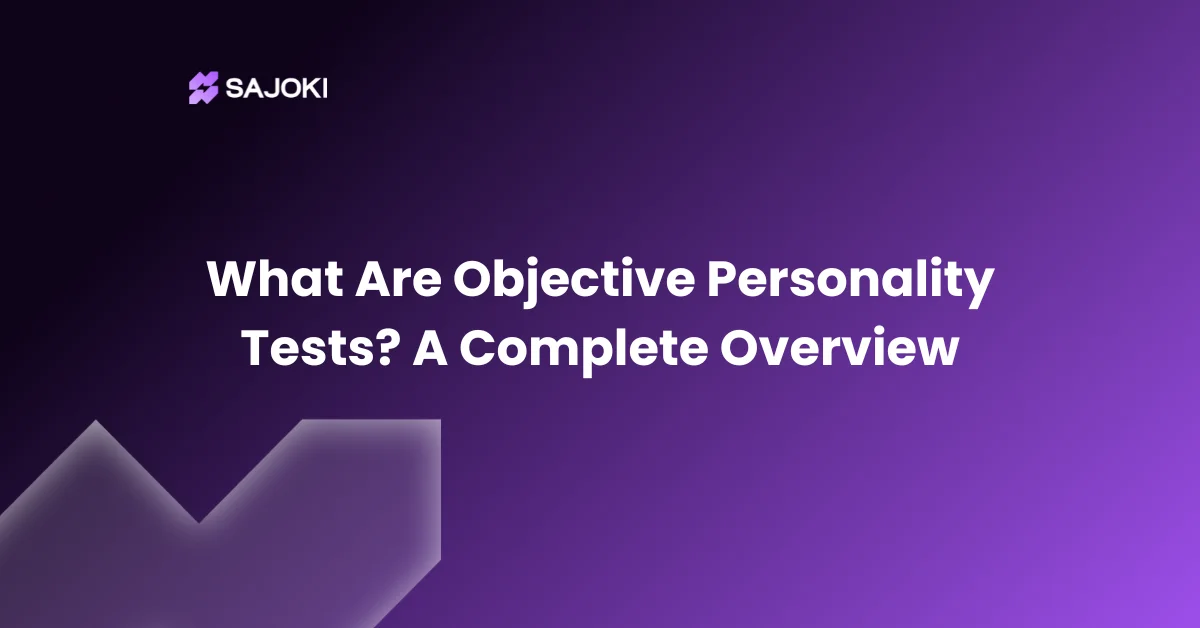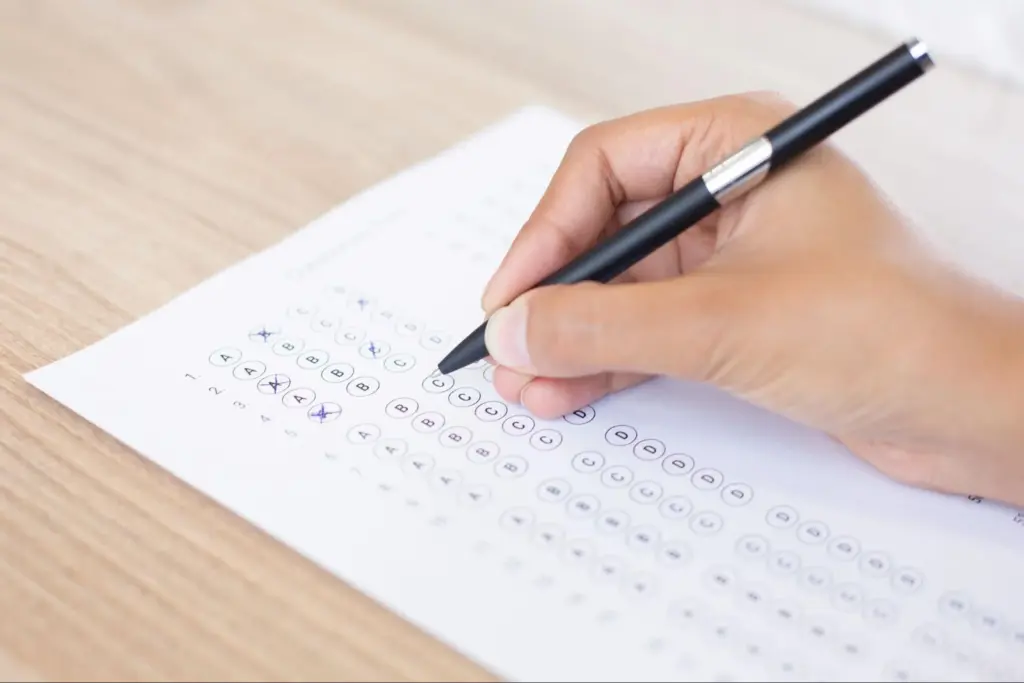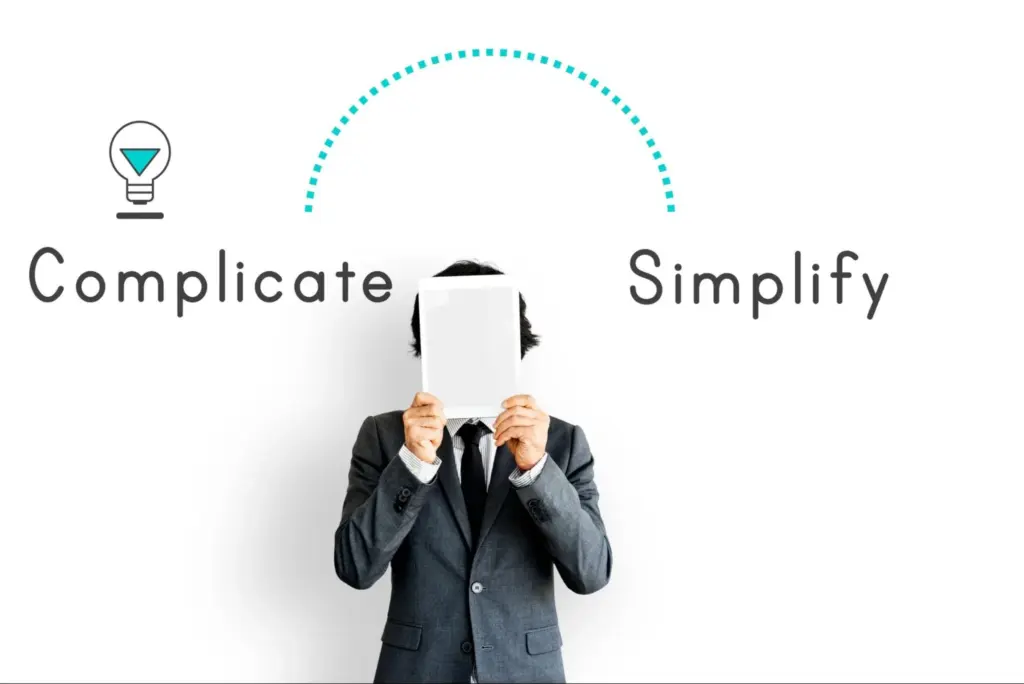While most people are aware of personality tests, they aren’t aware of the types of personality tests available. An objective personality test is one of the types that is available and could be your go-to personality test type. However, most of us don’t even know what it is.
So, what are objective personality tests?
Objective personality tests are structured tests where applicants can’t input their own opinion or anything. The questions, as well as options for answers, are pre-made, and no user input will be taken. Furthermore, the score for each option is also pre-determined to ensure consistency.
In this blog, we will get into all the nitty-gritty details that you need to know about objective personality assessments. Moreover, the pros and cons will be covered along with real-life applications to get a better grasp of the concept. Let’s start with the fundamentals first.
What Are Personality Tests?
Tools meant to categorize and evaluate unique qualities, behaviors, and patterns of thinking are personality tests.
They operate by asking questions or offering scenarios that highlight how someone usually responds, feels, or acts in particular circumstances.
These tests have one main goal: to turn vague traits into measurable data.
For example, do you love social events? This could measure extroversion.
On the other hand, do you check your work twice? This could evaluate conscientiousness.
Types of Personality Test
Fundamentally, there are two types of personality tests: subjective and objective.
-
- Subjective Personality Test: Rely on open-ended answers or interpretations.
- Objective Personality Test: Use fixed responses such as True/False and automated scoring to eliminate bias.
Nevertheless, whether subjective or objective, these tests simplify the complexity of human behavior into actionable insights. Yet, their accuracy depends on design, honesty of responses, and context.
What Are Objective Personality Tests?
The term “objective” in personality testing refers specifically to the standardized scoring method as well as the test responses.
While subjective personality traits depend on interpretation and opinion, it’s the complete opposite for an objective personality test.
What Makes a Personality Test Objective
Here’s what makes a personality test objective;
Fixed Responses
Objective personality tests have fixed options for the answers. Thus, candidates can only select the options provided by the test provider.
For example, True or False, as well as scales like Strongly Agree to Strongly Disagree, ensure consistency and minimize variability in results.
This avoids personal opinions and interpretations that could affect the results of the test.
Standardized Scoring Systems
Similarly, the test scores are also predetermined. For example, selecting option “A” will give the candidate 3 points. This way, the scores are already known by the system and avoid any form of bias.
As you already know, bias is expected with human judgment. Bias is bypassed by avoiding evaluator judgment when interpreting results.
Reproducible Outcomes
When the same person takes an objective personality test multiple times under similar conditions, the results should be consistent.
This reliability is crucial for making important decisions in hiring, clinical assessment, or research contexts.
Quantifiable Results
Objective personality tests produce numerical scores and statistical data that can be measured and compared across different individuals or groups.
This quantification allows for clear benchmarking and reliable comparisons between candidates or over time.
Examples of Objective Personality Test
To give you a better idea of an objective personality test, examples are crucial, so here they are;
1. Minnesota Multiphasic Personality Inventory (MMPI)
True/false questions in the MMPI assess emotional stability among other qualities. For example, a statement like “I often feel sad” has only two options: true or false.
The score is set; choosing “True” could award two points, while choosing “False” results in zero. Results are consistent, and bias is avoided this way.
The MMPI is used by doctors to assess applicants for high-stress occupations or identify mental health disorders.
2. NEO Personality Inventory (NEO-PI-R)
The foundations of the NEO Personality Inventory are the well-known Big Five framework, supported by data and research.
A question like “I enjoy trying new things” can include options ranging from strongly disagree to strongly agree.
Choosing Strongly Agree gives pre-defined points that are automatically totaled.
Researchers and companies use it to forecast traits like adaptation or collaboration.
3. 16PF Questionnaire
Using structured multiple-choice questions, the 16PF Questionnaire assesses qualities relevant to the workplace, like confidence and independence.
For instance, a question might ask whether you prefer leading projects, with fixed options like Always, Sometimes, or Never.
Every answer relates to a specified score, which lets the system automatically generate results.
Businesses depend on this test to find applicants fit for positions requiring leadership, problem-solving, or teamwork. Therefore, guarantees that decisions are based on facts instead of personal preferences.
Pros & Cons of Objective Personality Tests
Now that you are aware of what are objective personality tests, we can dive in deep with the pros and cons section. With this information, you can decide whether they are a good fit for your needs.
Before we dive deep, here’s a table that should summarize the pros and cons.
| Pros | Cons |
| Identical questions and fixed scoring ensure consistent, comparable results. | Relies on honesty; answers may be inaccurate or faked |
| Fast to administer and score; automated, immediate results | Reduces complex traits to numbers; misses context |
| Easy to give to large groups simultaneously | Questions/norms may not translate fairly across different cultures |
| Minimizes human scorer subjectivity/inconsistency | Struggles to explore underlying reasons or unique situations |
Pros of Objective Personality Tests
Here are the pros of objective personality tests;
1. Consistency
Every test-taker answers identical questions under the same rules. Moreover, as the scoring system is fixed, no corrections or exceptions.
This uniformity guarantees results that are equivalent among people, groups, and even different time periods.
2. Speed
While many subjective personality tests require human interaction, objective personality tests are completely automated.
Furthermore, the results are immediate as well. Objective personality tests excel in speed, which is essential in high-volume job roles.
3. Bias Reduction
Whether intentional or not, human decision carry their own biases. Objective tests depend on established scores, so they eliminate this risk.
Regardless of who is answering, a response like “Strongly Agree” always results in the same numerical value.
4. Scalability
Administering these assessments to big groups simultaneously is simple. Companies can assess hundreds of job applicants, or researchers can gather data from diverse populations without logistical hurdles.
Cons of Objective Personality Test
Here are the cons;
1. Self-Reporting Risks
Self-reporting risk is not a flaw of objective personality tests only, but of personality tests as a whole.
Personality tests depend on honesty. Test-takers might intentionally or unintentionally misrepresent themselves. This might lead to inaccurate results.
2. Oversimplification
Personality traits are complicated and context-dependent. Fixed-choice systems eliminate complexity and translate behaviors into numerical values. As a result, it can’t fairly represent situational reactions or real-world adaptation.
3. Cultural Bias
Tests developed in one cultural setting might not be relevant everywhere. Questions concerning social norms, values, or experiences could divide or skew people from several backgrounds, therefore biasing the results.
Overall, when depth, honesty, and cultural sensitivity are important, objective tests don’t work as well as they do in controlled, high-stakes situations. Pair them with interviews and skill tests for a fuller picture.
What are the Uses of Objective Personality Tests?
Objective personality tests aren’t just useful for theory; they also help people make important choices in the real world. Here’s how they’re used across fields:
1. Clinical Psychology
Tests such as the MMPI help doctors determine whether a patient has a mental disease, such as anxiety or depression. The fixed-response structure guarantees that all symptoms are assessed consistently, therefore preventing incorrect diagnosis.
These exams also demonstrate how well the medicine or therapy is working when you compare scores over time.
2. Workplace Recruitment
Companies utilize tests such as the 16PF Questionnaire to screen prospective employees.
Automatic scoring of traits like assertiveness or teamwork helps companies find people who are good at jobs like customer service or leadership.
This cuts down on biased decisions while speeding up the hiring process.
3. Academic Research
Tools like the NEO-PI-R are used by researchers to look at personality trends. For instance, they might look at how “openness to experience” is linked to different cultural job choices. The standard style makes sure that data can be compared and is valid statistically.
4. Education and Career Counseling
Schools and career counselors employ objective assessments to assist students in selecting careers that would match them. If a kid shows great conscientiousness, they may excel in a disciplined field like engineering.
On the other hand, if they score high on “extraversion,” they may excel at public relations or sales.
5. Military and High-Risk Jobs
People are screened for high-stress occupations, such as pilots and soldiers, using objective assessments. Using objective personality tests helps one to determine how well someone will perform under pressure by considering factors including mental stability and risk tolerance.
FAQ
How often should someone retake an objective personality test?
While objective personality tests are quite stable, but can change due to changes in the experience of human beings. Thus, retesting every 2-5 years is reasonable for career or personal growth contexts.
Are objective tests suitable for children or adolescents?
Some tests, including the Youth Version of the MMPI-A, are tailored for younger people. However, results should be interpreted carefully, as developmental changes can affect responses.
Can objective personality tests be skewed?
Yes, choosing socially desired responses allows test-takers to alter results. For example, selecting that they remain cool under pressure in the test. Some tests include validity scales to detect dishonesty, but no tool is foolproof.
Conclusion
To conclude, that was everything you needed to know regarding what are objective personality tests. They are not a different personality test, but are a part of personality tests where everything is standardized. Starting from the questions, available answer options, and scoring, everything is pre-set.
Nevertheless, there are both pros and cons that comes with standardization. If you are wondering which one you should go with, subjective or objective, the pros and cons should come in handy.












